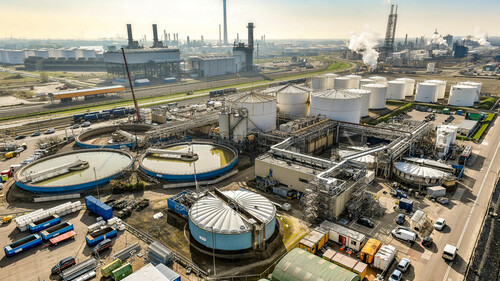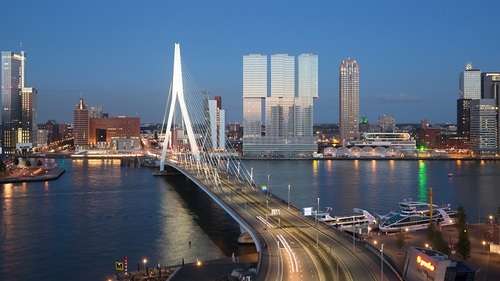New solvent deasphalter unit at Shell’s Pernis refinery increases production of more and cleaner fuels in Rotterdam, The Netherlands
Shell has safely commissioned a new solvent deasphalter (SDA) unit at its Pernis refinery, the first major investment at the site since 2011. The new unit enables Pernis to process a larger proportion of its oil intake into cleaner transport fuels, including marine gasoil compliant with IMO 2020.
The SDA unit further enhances the performance and competitiveness of Pernis, and at the same time, reduces the environmental impact of the product portfolio.
“Shell’s Pernis refinery is now ready to meet the anticipated demand growth for cleaner transport fuels that will help keep Europe’s people and economy moving. This unit pushes the boundaries of refining technology, seamlessly integrating with almost every part of the site to unlock the full value of each barrel of oil.” said Robin Mooldijk, Executive Vice President for Manufacturing.
The new, ten storey tall, SDA unit processes heavy fuels to clean middle distillates and provides increased crude flexibility, allowing Pernis to adjust operations to meet market demands and capture higher margins. It does not affect processing capacity.
Shell used a modular approach to construct the new SDA unit, which helped accelerate the project’s timeline and reduce costs. Process modules were constructed in China, shipped to Rotterdam and then integrated on site. In addition, Shell safely installed the SDA unit during schedule maintenance activity, minimizing disruptions to operations.
Shell’s Refining & Trading strategy is to continue capturing the most competitive margins by safely increasing both intake and processing flexibility at our refineries, as well as improving operational efficiency, reliability and environmental performance.
Shell took a final investment decision on construction of the SDA unit in December 2015. The Pernis team used simulators to train for both unit start up and day-to-day operations, resulting in a seamless transition from project delivery to commissioning.
As part of the project, Shell converted Pernis’s existing hydroprocessing unit into a Hydrocracker to processes deasphalted oil (DAO) from the SDA unit.
The project strengthens Pernis’ position as a key part of Shell’s customer-focused Downstream value chain, providing optionality for our Trading businesses that connect Pernis to global markets from the Americas to the East.
Pernis is an important contributor to the Dutch and European economies, and a trusted partner to our neighbouring community in the Rotterdam port area. Recently, Pernis and the City of Rotterdam began using residual heat generated from the refinery’s operations to heat 16,000 local homes, which could help reduce Rotterdam’s CO2 emissions by up to 35,000 tonnes per year.
Pernis is an integrated refinery and chemicals manufacturing site located in Rotterdam, the Netherlands. Pernis has the capacity to process 404,000 barrels per day into a wide range of high quality transport fuels.
Categories
Investments
2015-01-01
at Port of Rotterdam (NL) Investment detailsCountries
Companies
Latest news
Hycamite’s technology to decarbonize shipping awarded AiP by industry leader DNV
Kokkola Industrial Park →Hycamite’s proprietary Thermo-Catalytic Decomposition (TCD) technology offers a new approach to producing clean hydrogen by breaking down methane, the primary component of liquefied natural gas (LN...
Clariant catalysts will power the Ecoplanta: Europe's first waste-to-methanol plant
Chemmed Cluster Tarragona →Repsol is building Europe’s first plant to produce renewable methanol from urban waste The facility will use Enerkem gasification technology to produce 240 KTA of methanol Clariant will supply cata...
Lilly plans to build a new $3 billion facility to boost oral medicine manufacturing capacity in Europe for patients worldwide
Netherlands site will bring 500 manufacturing and 1,500 construction jobs while further strengthening Lilly's global supply chain
Ports of Duisburg and Rotterdam advance energy transition together
Port of Rotterdam →With this LoI, the two major European logistics hubs reinforce their goal of jointly developing sustainable transport corridors via waterways as well as future-oriented initiatives for the energy t...


